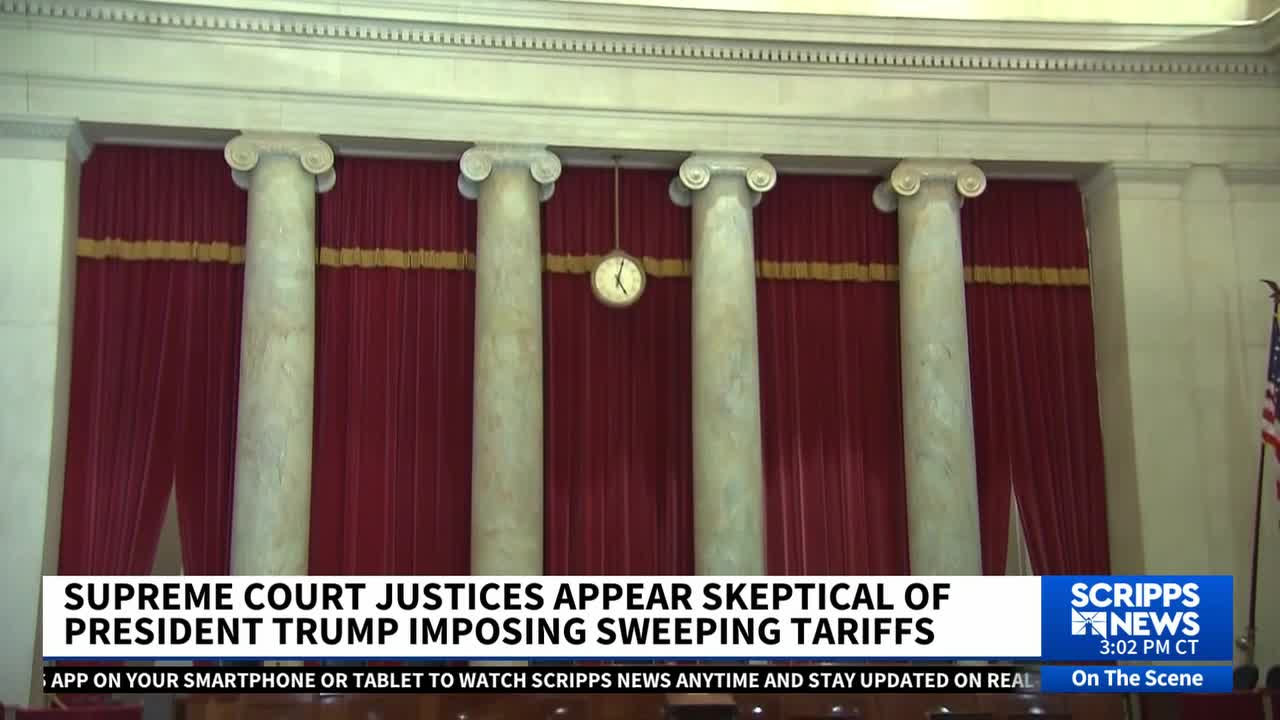The Trump administration and a group opposing tariffs delivered oral arguments before the Supreme Court for over two hours on Wednesday on whether President Trump can unilaterally implement global tariffs.
In Learning Resources v. Trump, a family-owned toy manufacturer brought a suit against the Trump administration claiming that tariffs implemented by the executive violates the Taxing and Spending Clause of Article One, Section Eight of the United States Constitution. The clause states, "The Congress shall have Power To lay and collect Taxes, Duties, Imposts and Excises, to pay the Debts and provide for the common Defence and general Welfare of the United States; but all Duties, Imposts and Excises shall be uniform throughout the United States."
The Trump administration has cited the International Emergency Economic Powers Act (IEEPA) for its power to invoke tariffs.
RELATED STORY | Trump says he may 'go watch' as Supreme Court weighs his power to impose sweeping tariffs
The Supreme Court will consider one of two questions: Whether the International Emergency Economic Powers Act can authorize tariffs as an emergency. And if the Supreme Court rules that it does, it also must decide on the constitutionality of the president using the IEEPA to invoke tariffs.
The Trump administration's position is that the sweeping tariffs are permitted as a means of regulation under the emergency powers law. U.S. Solicitor General John Sauer argued that the tariffs are designed to regulate imports and that generating revenue was "incidental."
Some of the justices, including Justice Sonia Sotomayor, emphasized that only Congress holds the power to tax. "You want to say tariffs are not taxes, but they are," said Sotomayor.
Chief Justice John Roberts noted the law has never been used before to justify tariffs, and Justice Neil Gorsuch posed concerns about limitless executive power if the law is interpreted this way.
Justice Brett Kavanaugh asked Sauer why the administration believes the president has power under the IEEPA to regulate imports with tariffs when the law doesn't mention tariffs. Sauer said tariffs are the "quintessential way" to regulate imports.
Attorney Neal Katyal, who is representing the companies in the case, argued that the president has other authority to impose tariffs, but the emergency law does not give the administration that power.
The U.S. Treasury has collected nearly $90 billion from the tariffs that President Trump has imposed under the IEEPA. The justices asked Katyal how that would be refunded if the court strikes down the administration's tariffs.
"We don’t deny that it’s difficult," Katyal said. But he also noted it is not impossible, nor is it unprecedented.
A district court and a federal appeals court both ruled that President Trump does not have the ability to impose tariffs under the emergency law. If the Supreme Court upholds the lower court's rulings, the fate of billions in tariffs already paid by companies importing products into the U.S. would be in question.
Although the court will hear arguments on Wednesday, a ruling is not expected for some time.




